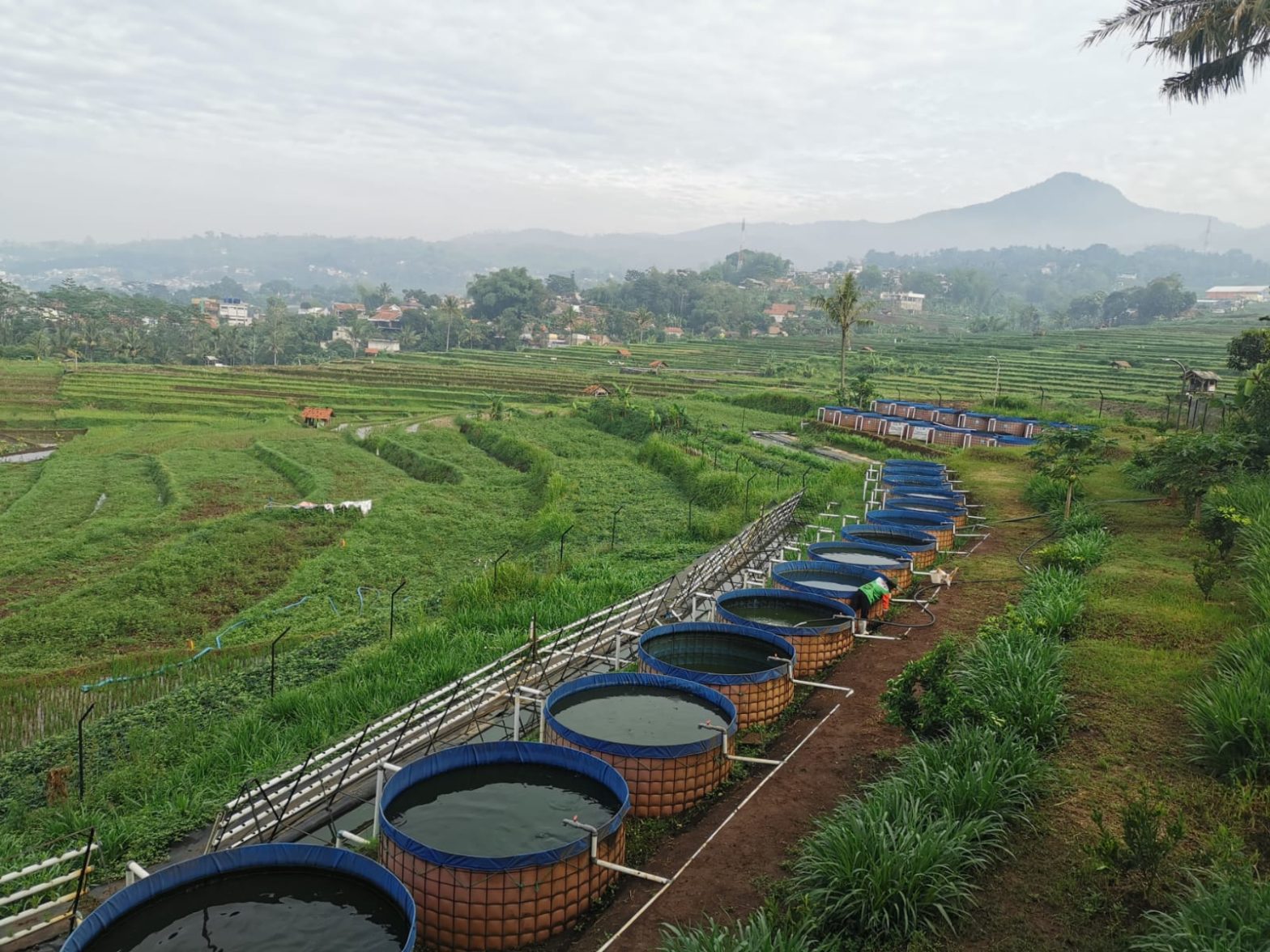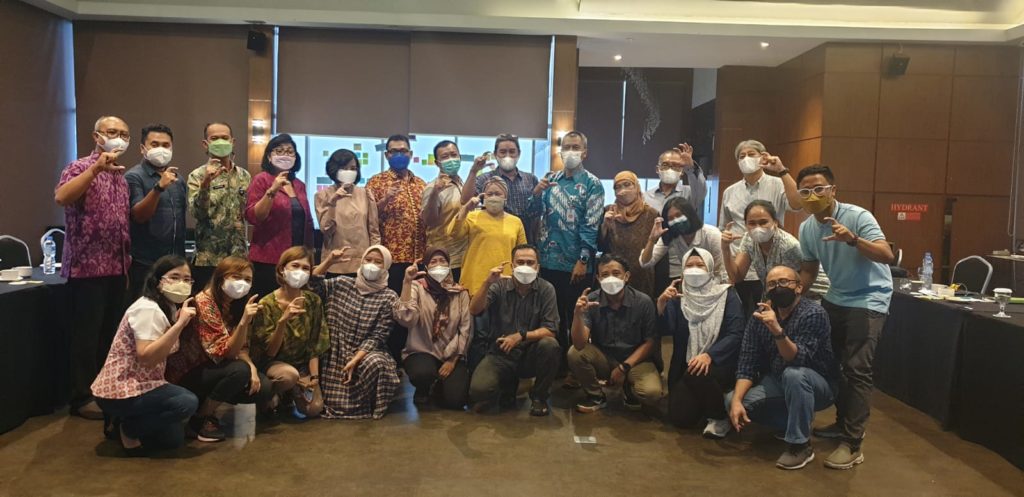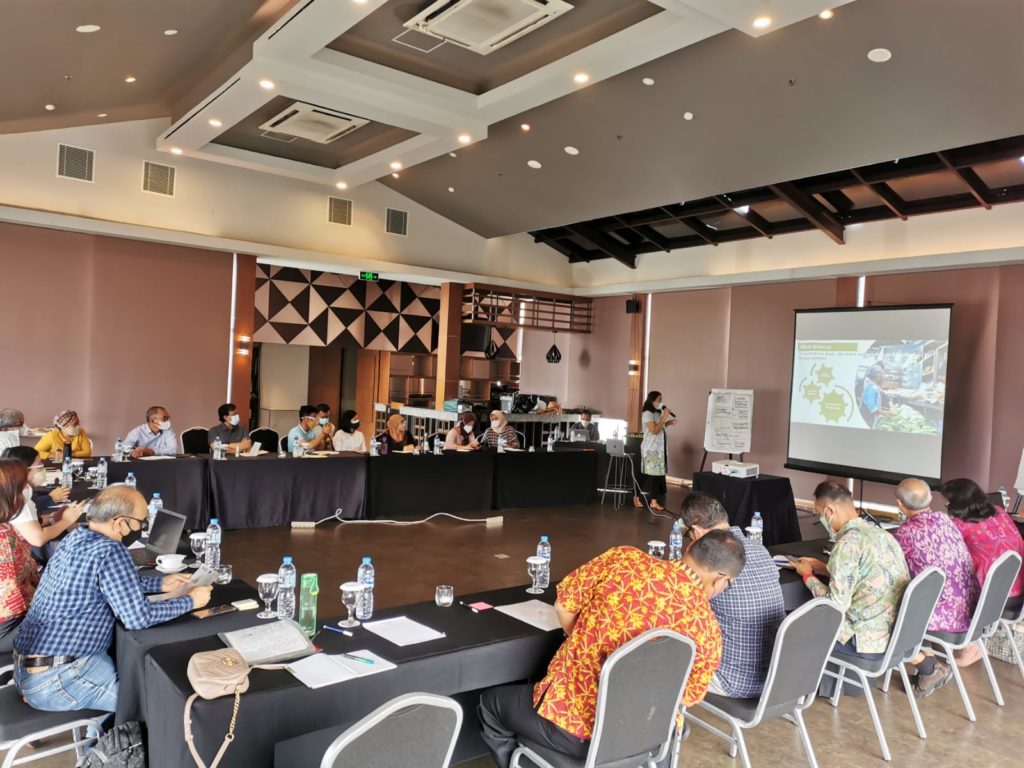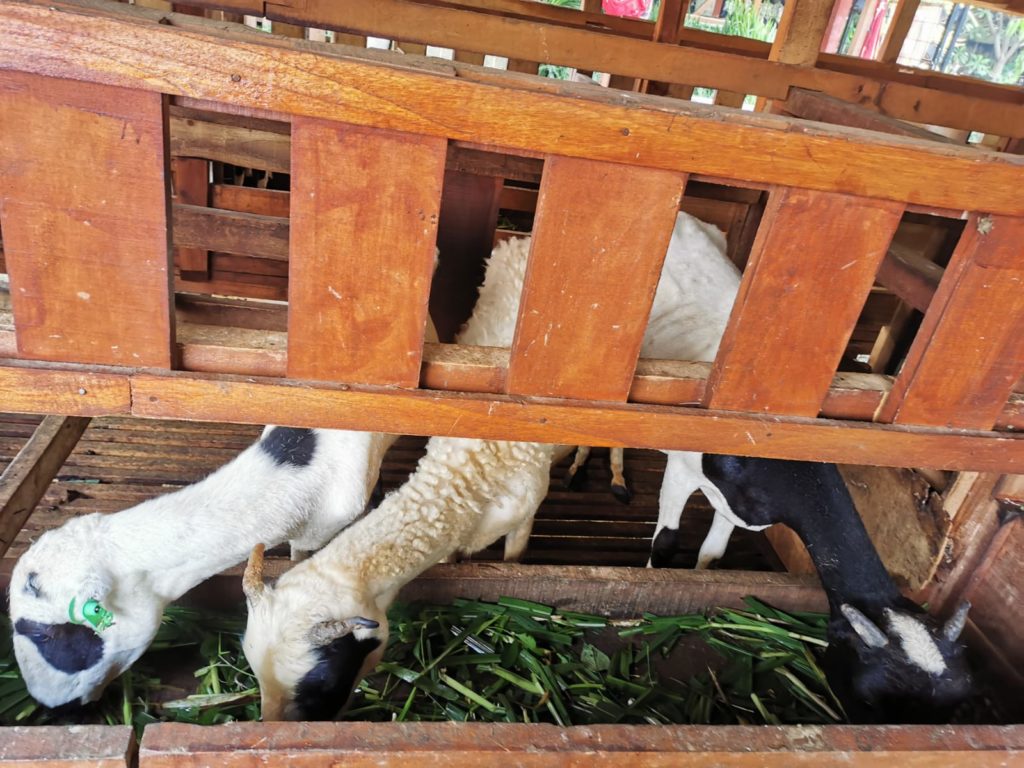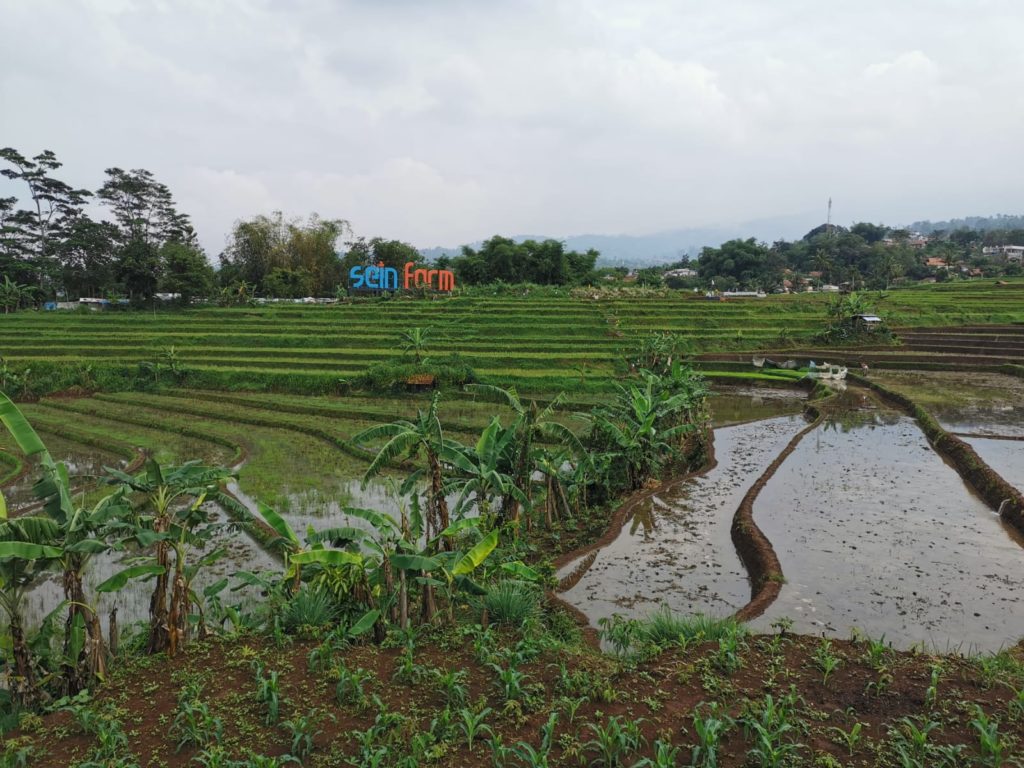Dini Laraswati, the Country Coordinator in Indonesia of the IURC Asia & Australasia programm made a visit to Bandung City from 12 – 14 November 2021 to participate in a workshop on “Preparation for Road Map toward Food Smart City”, organised by Rikolto Indonesia. The three-day event was also attended by representatives from other Indonesian cities, namely Solo City, Depok City, and Denpasar City. It facilitated knowledge exchange on the urban food system among the city officials and their technical partners.
On the first day, the participants shared their internal governance mechanisms for developing and implementing the food strategy. Solo City has developed comprehensive strategic documents and a medium-term plan implemented by cross-sectoral departments. In Bandung City, the Food Security and Agriculture Department (DKPP) acts as a focal point with the presence of the Team of Smart Food City that brings together city officials and key external stakeholders (academia, community, and NGOs). Bandung City has emphasised the added value of collaborating with universities and international organisations in their territory on the topic of food, particularly for the development of food projects and policies.
The participants had discussions to better understand the overall urban food supply chain — production, distribution, consumption, and waste management — and the current challenges, innovation strategies, and the desired result that cities were targeting.
Food production
Due to the limited availability of space for food production, almost 96% of food in Bandung City is produced outside the city area. Through the “Buruan Sae” programme, Bandung City has supported the food security of families and communities. Launched in January 2020, Buruan Sae is an integrated urban farming programme that utilises unproductive land of the household to grow vegetables, medicinal plants, flowers, and fruits and raise fish and livestock. To date, there are 234 sites implementing the Buruan Sae model.
Despite the progress, Buruan Sae still does not have the potential to have a strong impact on food production at the city level. The city aims to produce 25% of its nutritional need with the use of technology and to Increase land productivity. They have been looking to unlock more spaces to grow food locally, including underutilised or alternative spaces like vacant government buildings and rooftops. The city would continue to support urban farmers by providing technical support and encouraging technology transfer. The discussions revealed that there was a need to develop additional capacity like food production processes (in the urban and peri-urban area), new business models, value chain, financing instruments, digitalisation, technology-based solutions, innovation of public procurement, etc.
Food distribution
Food distribution systems to cities are combinations of activities such as handling, storage, packaging, retailers, etc. Bandung City depends to a varying extent on imported food. This affects price fluctuations and inflation. The Bandung City Government, through the Communication and Information Agency, launched apps for real-time food pricing (ARIMBI). The food price is collected from all traditional markets in Bandung City. The city has been looking for more digital innovations that could be brought over for food production policy.
Bandung City has acknowledged the added value of collaboration with various stakeholders to develop an innovative solution to short supply chains. Launched in 2020, Badami is an online marketplace that connects food suppliers (particularly from micro, small, and medium enterprises/MSMEs) and consumers. The platform is a result of collaboration between the Bandung City Government, NGOs, and academia. There is a need to reach more consumers through product diversification, innovation of services, and Improvement of the platform to make it more user-friendly.
Bandung City has always encouraged the development of farmers’ markets or farmer shops as a way to improve the condition of local farmers. A new programme has been launched recently by DKPP, which allows the consumer to pre-order agricultural products and let the urban farmers grow based on requests.
Traditional markets, concentrated in Bandung City, are congested, unhealthy and insecure places. Because of this, there are spontaneous markets, whichh cause traffic, health and safety problems to the city. Bandung City official has been aware of the need to develop collaborative partnerships with the private sector to replace, improve and manage the traditional market.
DKPP plays a role in monitoring the quality of fresh food available in the market within the city by regularly doing a quality check. They provide food testing lab equipment and operation training to the sellers in the traditional market for conducting tests such as a chlorine test, residues & contaminant detection and analytical chemistry testing.
Food consumption
Through several campaigns and educational activities targeting urban consumers and school-age children, Bandung City has fostered people’s awareness of food literacy to encourage them to make healthier food choices. A research carried out by the University of Parahyangan and Rikolto Indonesia in 2019 studied the behaviour of urban food consumers (particularly in the middle-class community) in Bandung City. It found that a good level of education allows the consumer to have wider access to information, including a healthy lifestyle. The result of the study should be able to the awareness campaign with a direction.
On the other side, Bandung City has been struggling to tackle the issue of poor nutrition for kids. In 2021, about 6.5% of children under age 5 have stunted growth.
Food waste management
“Kang Pisman” (Reduce, Segregate, Reuse) is one of the main actions to manage waste in Bandung City. Segregation is the most important activity that Bandung City always promotes and enforces for effective waste management in the urban area with the aim of gradually reducing landfills in size and finally achieving zero landfill. Segregation of waste components should be encouraged at source, and it should be supported by the availability of infrastructure at the central facility, e.g., cleaning waste and proper segregation technology. Capacity building at the municipality to enforce and implement source segregation is a must. Discussion participants agreed that there was no point in doing segregation at home if the separated waste would get mixed up in the collection vehicle along the route to the treatment plant.
There have been initiatives to collect remaining urban farming or organic household waste as compost for planting media, fish and other livestock. However, the limited space of composting areas hampers the progress.
Digital solution is employed to reduce the food waste. Through Badami, the foodservice providers, e.g., restaurants, catering and hotels, can share and donate the leftover foods that would otherwise go to landfills.
Visit to Sein Farm
On the second day, the participants paid a visit to an integrated urban farming site, “Sein Farm,” launched in September 2020. With a panoramic mountain view, the 13-hectare site offers refreshing air. Managed by DKPP, the site comprises 12 hectares of terraced rice field, area of horticulture crop, fish cultivation (catfish), chicken and sheep farms. The site integrates various practical technology, for example, the utilisation of farm animal organic waste as fertiliser. The site also takes advantage of an aquaponic sub-system for rice production, the use of Biofloc technology for catfish farming, and a hydroponic system for vegetable production. To create a sense of ownership of the community in the surrounding area, local farmers are employed for the daily operation of the rice field. Through the land acquisition by the city government, it is hoping that urban farming can be maintained and land-use change can be avoided. The site also provides a food testing mini lab to inspect and assess meat, dairy, fruit and vegetables, poultry, and food ingredients. Taking the benefits of the beautiful view and urban farming production, Sein Farm serves as an educational facility and an eco-tourism destination.
Visit to Mayor
Oded Mohamad Danial, Mayor of Bandung, welcomed the workshop participants to his house (Pendopo Bandung). During the discussion, he stated the commitment to increase the sustainability of Buruan Sae. The other ambition expressed by the mayor was the improvement on waste management by promoting “Kang Pisman”. All participants appraised the political commitment of mayors to favour food policy, which is a key to ensure the success of urban food security.
Within the IURC programme, Bandung City and Rome of Italy will cooperate to exchange knowledge and best practices on several issues, among which is urban food.
